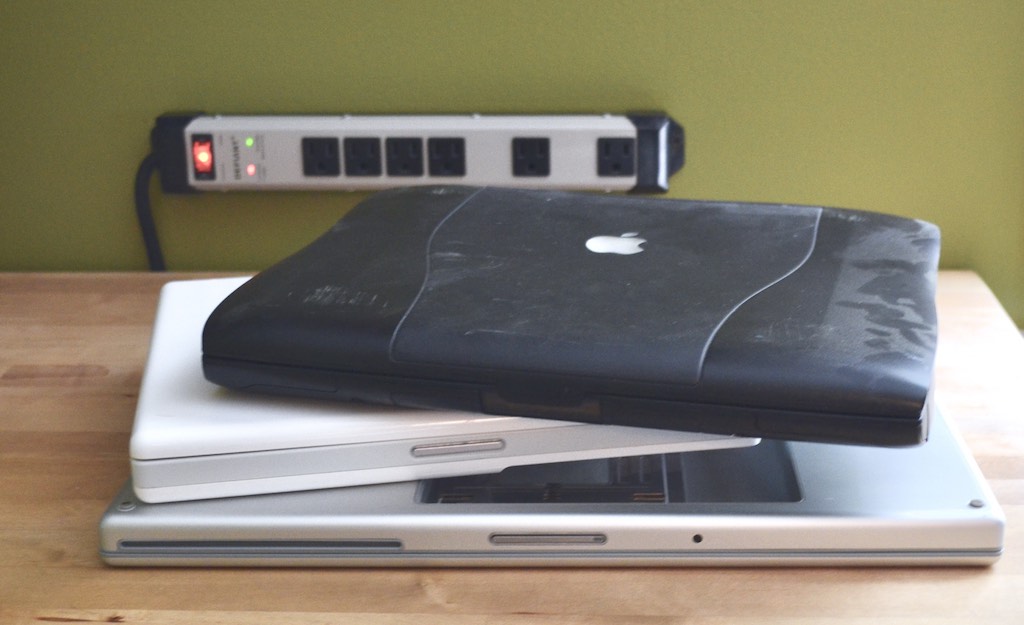
Laptops are great, at least until they’re not. And that “not” phase has a habit of sneaking up on you. I’ve been there, many times. I get a new laptop and spend days getting it set up just the way I want it. Over the next few months I start to get accustomed to its idiosyncrasies and the differences between it and my previous laptop. Soon, I’m totally accustomed to using the new laptop and can’t imagine switching to anything else. Why should, I? This one is absolutely perfect!
After a few years, I still can’t imagine giving it up, but I’m starting to compensate for some of its shortcomings. Another year or two and the situation has degenerated. The laptop is really not up to what I’m asking it to do any more, so I’m babying it through tasks. It’s costing me in terms of productivity, but I’m just too comfortable with it to consider upgrading to a new one. A few times, I’ve waited too long and the decision to buy a new laptop has been made for me—in the form of a catastrophic failure. And having to go from a dead laptop to a new one is much more stressful that transitioning at a comfortable pace.
The key is to recognize that your current laptop is nearing the end of its useful life so you can take action before you start wasting too much time coaxing more life out of it, and before disaster strikes. To help, I’ve put together a list of five signs you need a new laptop.
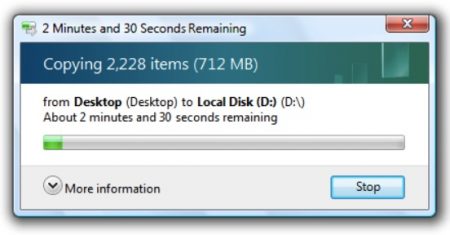 Everything is So … Slow
Everything is So … Slow
One of the telltale signs your laptop is getting on in years is when everything starts to feel slow. Applications don’t open instantly, they keep you waiting. It seems to take forever to boot. Switching between open windows or tabs causes a pause. You learn to go get a coffee while waiting for files to copy.
There are ways you can upgrade your laptop to help deal with these issues (I have a bunch of them listed here), but eventually you reach the point where there are no more fixes.
You Can’t Install the Latest Operating System
If you want to take subjective feel out of the equation, Apple and Microsoft offer a definitive way to tell that your laptop has passed its best before date. Every time a new version of Windows or macOS is released, the companies publish a list of minimum supported specs. When your laptop can no longer download and run the current version of its operating system (or any mission critical applications), it’s time to replace it.
You’re Squinting at the Display
One of the giveaways to a laptop’s vintage is its display. Low resolution, bad viewing angles, poor colour reproduction and dim backlighting are signs that’s it’s time to get something better. When you find yourself sitting in front of your laptop squinting at the screen, you may need reading glasses. But there’s a good chance you also need a new laptop.
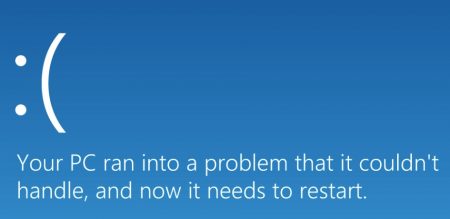 Crashing
Crashing
A computer that frequently crashes is bad news. Crashing can result in lost work if it happens while you have an un-saved file open. It can corrupt not only data but your system itself. And it costs you time. Every time your computer crashes, you have to restart (and probably need to scan the drive for damaged files). Every computer has the occasional crash, but when they start happening regularly, that’s a sign a new laptop may be in order.
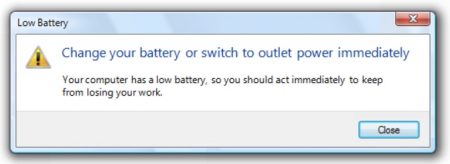 The Battery Doesn’t Last
The Battery Doesn’t Last
One of the key reasons to choose a laptop over a desktop PC is portability. At the heart of that portability is the battery. When you buy a new laptop, that battery gets you hours of time free of electrical outlets so you can work virtually anywhere. But as it ages, battery life starts to take a hit. When that happens, you have a choice. You can buy a new battery, if your laptop’s is replaceable. Increasingly, batteries have been integrated into the case. That requires booking time with a technician to take the laptop apart and install a new battery, which can be expensive. You can reach the stage I hit with one of my old MacBook Air laptops, where the battery must be replaced, but the part has been discontinued. Checkmate …
When your battery life is at the point where you’re effectively stuck working at a desk to stay plugged in, it’s a good time to ask yourself if it’s worth investing in a new one. At this point, that money may be better spent on a new laptop instead of a replacement battery.
There are other signs, too. I’ve had the lettering wear off my keyboard. Wireless networking has become a bottleneck. Sometimes an older laptop begins to feel like a boat anchor, it’s so big.
The Advantages of a New Laptop
If your current laptop is showing its age and exhibiting some of the symptoms listed above, now is a great time to be looking at a replacement.
Intel’s 7th generation Core CPUs are in most of today’s laptops, and some will soon adopt the 8th generation. They include built-in 4K video support and reduced power consumption that gives laptops significantly improved battery life. They are also much faster. Intel says a laptop equipped with a 7th generation Core CPU can triple some of the benchmark scores of a five year-old machine. SSDs are increasingly common instead of hard drives. That combination –SSD plus 7th generation Core CPUs– are a one-two punch that will make your old laptop feel slow as molasses.
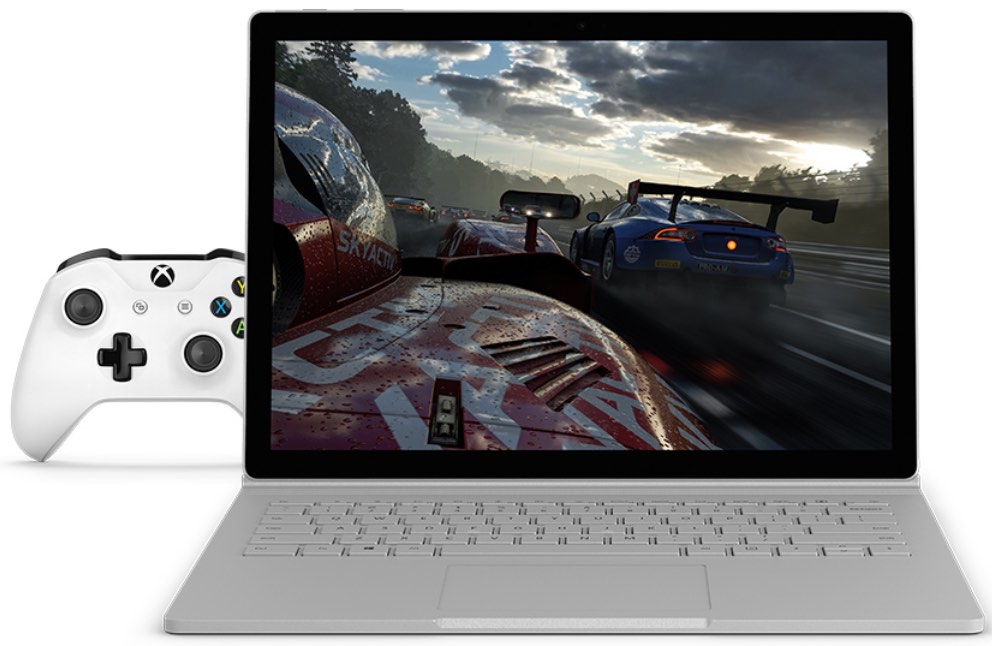
Display technology is also seriously improved. You can expect Full HD resolution in most current laptops, with some hitting 4K. That boat anchor effect? No longer an issue. Laptops are thinner and lighter than ever, and many are convertible as well. You can use them in multiple modes, not just as a laptop. Some even have displays that detach altogether, becoming standalone tablets.
Perhaps the ultimate example of all of the above is the Surface Book 2. Microsoft’s latest flagship laptop can convert into a tablet. It’s lightweight and incredibly powerful. The display has 3,000 and 2,000 pixels, and an optional discrete Nvidia video card makes it able to take on challenges like gaming and VR. And it goes 17 hours on a single charge …
So take a good look at your laptop. If its best years are behind it, pass it on to a family member or friend, or donate it. And then come and check out all the great new laptops at Best Buy to find your new favourite.



